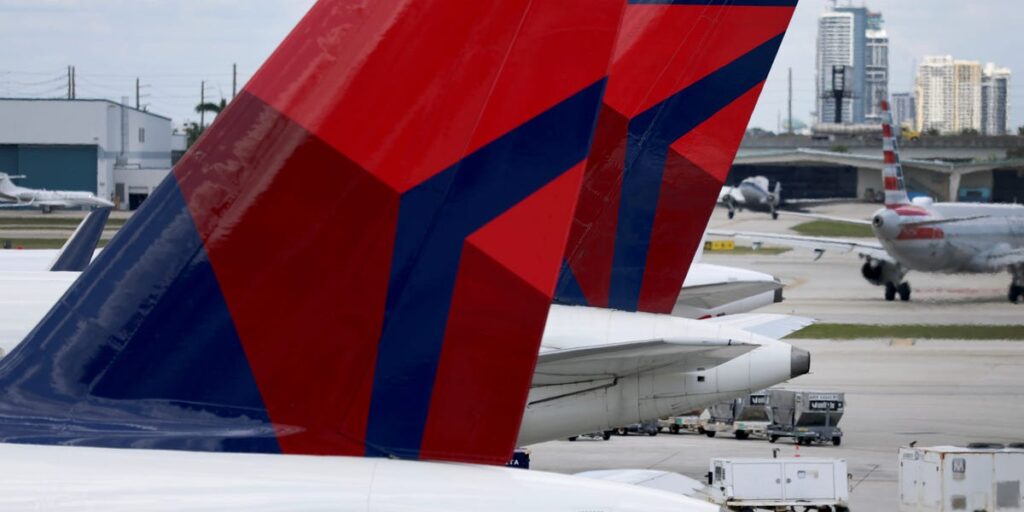Airlines’ fortunes are starting to turn around thanks to a boom in premium travel.
Economic uncertainty and tariff announcements gave the industry a rocky start to the year, with Delta Air Lines losing a third of its share price by April.
“If you look at any measure of consumer confidence, it certainly took a big dip in the early part of the year and then again in April after the Liberation Day announcements were made,” CEO Ed Bastian said during a Thursday call to discuss its Q2 earnings.
Airline stocks are strongly correlated with the economy at large because travel is one of the first things people cut when they have less spending money.
However, Thursday also saw Delta post bumper earnings. Its revenue of $15.5 billion was a record for the second quarter, with pre-tax profits of $1.8 billion.
The stock rose 12% after beating Wall Street estimates, extending a gain of more than one-third over the past three months, having plummeted in the first few months of 2025.
This pattern is reflected by Delta’s main competitors, United and American, which both saw shares surge on Thursday.
Bookings for economy seats and from Europeans have suffered, but that fall has been offset by a rise in demand for premium.
Delta’s second-quarter results showed passenger revenue for the main cabin fell 5% compared to last year, but for premium products, this rose 5%.
Since the pandemic, travelers have been more interested in shelling out for upgraded experiences.
Bastian said on the call that Delta’s target consumer has a household income of at least $100,000, representing about 40% of the US. “That cohort has accumulated a significant amount of wealth in the post-COVID era,” he added.
Meanwhile, airlines have slashed capacity for domestic flights. After rising about four percentage points through April, it’s now expected to be down by 1% industry-wide come September, said Delta president Glen Hauenstein.
“I’ve been in this business quite a long time, and I’ve really never seen that amount of capacity come out in a non-recessionary environment,” he added.
“So I think this is a really good indication that the industry is doing what it needs to do to restore profitability.”
On the other hand, Delta’s transatlantic capacity has grown, and revenues here rose 2% since last year’s records.
That’s despite Europeans losing interest in visiting the US since Donald Trump’s election prompted stricter immigration rules.
“We’re seeing a little bit of reduction of inbound coming from Europe into the US, but that’s only 20% of our mix,” Bastian told CNBC. “To the extent we have some reductions, we offset that with more Americans going in.”
He added that while the weaker dollar makes it more expensive for Americans to visit Europe, the exchange rate also makes Europeans visiting the US more valuable to Delta.
“Overall, it’s going to be a really strong summer for us in the transatlantic,” he added.
Plus, Bastian said he expects the summer peaks to be less dramatic, as heatwaves and overtourism protests could prompt more Americans to postpone their trips to later in the year.
In all, Delta’s results suggested that the worst of this year’s volatility could be in the past.
United is scheduled to announce its results next Thursday, followed by American the week after.
Read the full article here


